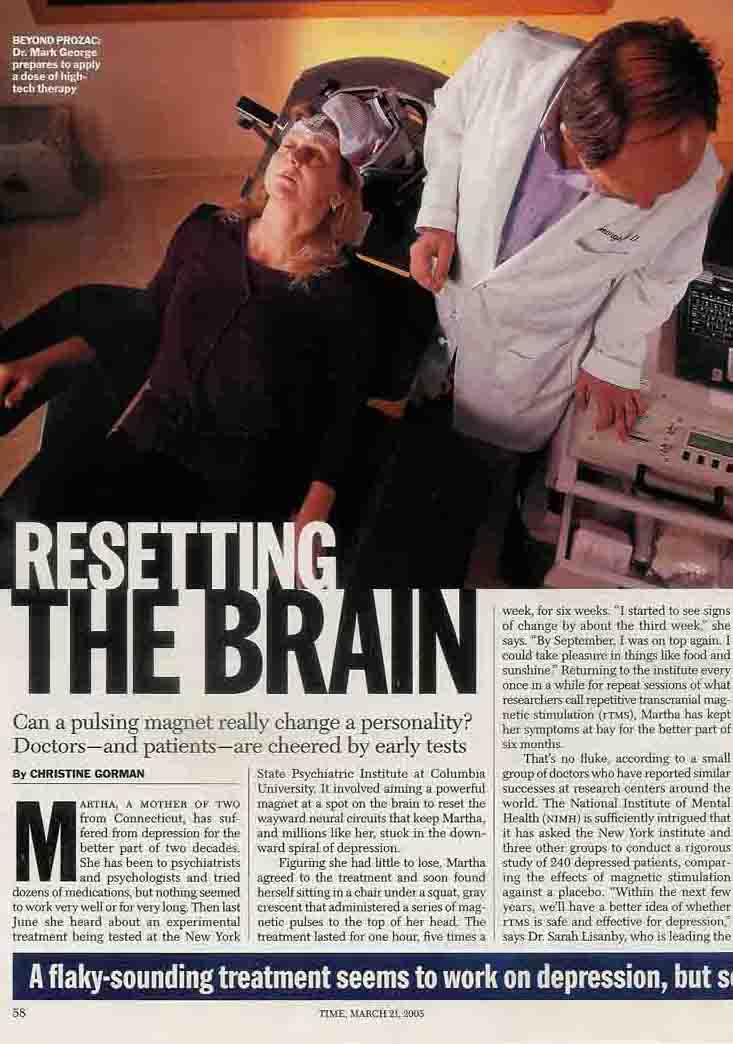|
TRANSCRANIAL MAGNETIC STIMULATION
|
|
|
========================================================================================================
Depression
(and other disorders,)
M.T. Kirkcaldie, et al., Transcranial Magnetic
Stimulation as Therapy for Depression and
Other
Disorders,
" Aust N Z J Psychiatry, 31(2),April 1997,
. 264-272.
This review article examined the literature concerning the use of transcranial magnetic stimulation in the treatment of depression. Results showed the high-frequency, repetitive transcranial magnetic stimulation treatment to be an effective, side-effect free therapy for depression that may hold promise for treating related psychiatric disorders as well.
========================================================================================================
depression
C. Haag, et al., "Transcranial Magnetic
Stimulation. A Diagnostic Means from Neurology as Therapy in Psychiatry?
" Nervenarzt, 68(3),March 1997, . 274-278.
This review article notes that transcranial magnetic stimulation has been shown to elicit antidepressant effects, electically stimulating deep regions of the brain.
========================================================================================================
depression
Conca, et al., "Transcranial Magnetic
Stimulation: A Novel Antidepressive Strategy?" Neuropsychobiology,
34(4),1996, . 204-207.
Results of this study led researchers to conclude that patients suffering from major depression experienced a significant reduction of depressive symptoms following treatment with transcranial magnetic stimulation coupled with standard medication relative to patients taking the medicine. This was true after just three TMS treatments.
==========================================================================================================================
Neurology 2002;58:1288-1290From the Department of Psychiatry, University of Iowa College of Medicine, Iowa City, IA.
Address correspondence and reprint requests to Dr. David J. Moser, Department of Psychiatry JPP 2880, University of Iowa College of Medicine, 200 Hawkins Drive, Iowa City, IA 52240; e-mail: David-Moser@uiowa.edu
The cognitive effects of active and sham repetitive transcranial magnetic stimulation (rTMS) were examined in 19 middle-aged and elderly patients with refractory depression.
Patients received either active (n = 9) or sham (n = 10) rTMS targeted at the anterior portion of the left middle frontal gyrus.
Patients in the active rTMS group improved significantly on a test of cognitive flexibility and conceptual tracking (Trail Making Test–B).


Του ΣΠΥΡΟΥ ΜΑΝΟΥΣΕΛΗ http://www.enet.gr/online/online_text/c=113,id=55053648 click here or here